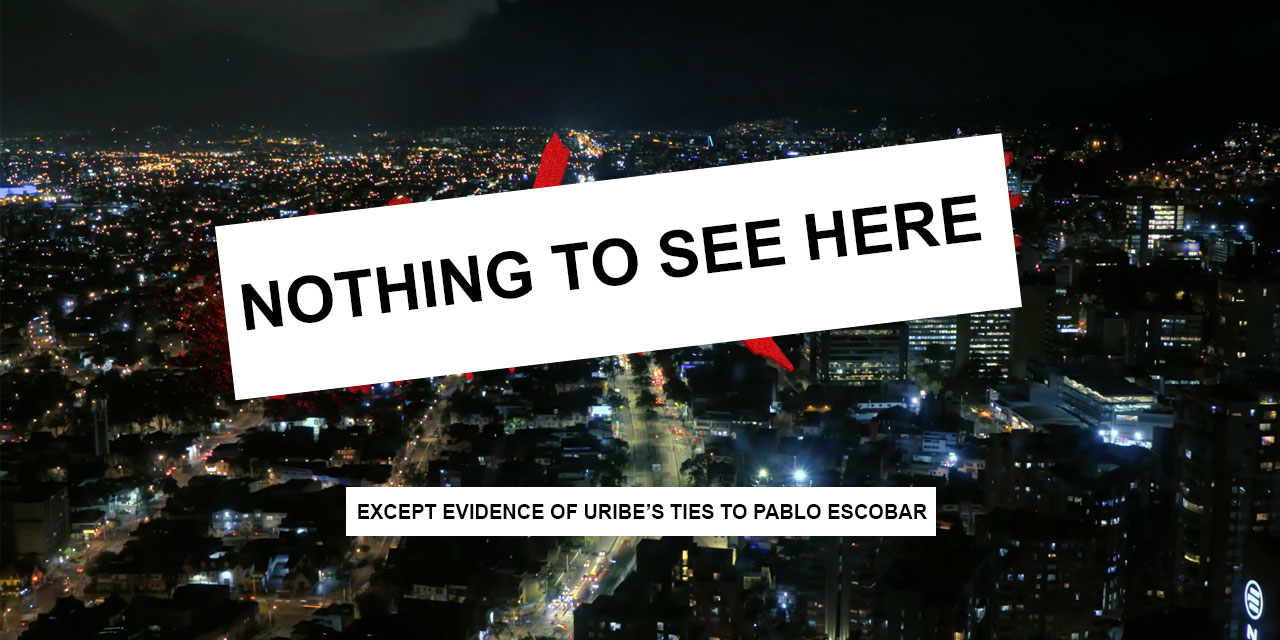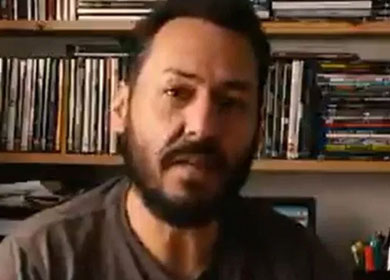Colombia’s media are pretty much pretending that “Matarife,” the hugely successful online series on former President Alvaro Uribe, does not exist.
Last week’s episode on the evidence Uribe did favors to the Medellin Cartel drew an astonishing million visitors, but wasn’t news worthy to the country’s media.
The claim of Daniel Mendoza that he has been on the run and is fearing for his life didn’t even trigger press freedom foundation FLIP to speak out in his defense.
Why is an executive of Colombia’s press freedom foundation stigmatizing journalists?
Priority #1: character assassination
The opinion pieces that have appeared in media have solely been dedicating themselves to discrediting the series and its maker.
Newspaper El Espectador even compared the series based only on evidence to far-right website El Experdiente that often published disinformation.
Far-right pundit Salud Hernandez dedicated her column in weekly Semana to unsubstantiated claims made by elite Club El Nogal that in 2016 Mendoza had been touching his private parts in front of women after he wrote a book about the club.
A columnist of news and opinion website Las2Orillas falsely claimed that “it is no longer online” on Friday, adding that “people got tired of it.”
Three hours after going online later in the evening, Matarife’s fourth episode reached more than 300,000 people on YouTube alone and again was dominating Twitter.
Colombia’s VP to sue series on Uribe, but doesn’t seem to know for what
Priority #2: Judicial harassment
Pundits and politicians tied to the mafia have begun filing criminal charges against Mendoza, who broke the rule that you don’t reveal evidence of Uribe’s ties to the Medellin Cartel.
Doing so has been getting people killed since the assassination of Justice Minister Rodrigo Lara in 1984 who discovered that a Uribe family helicopter was found at a cartel cocaine factory in southern Colombia.
Ironically, Matarife featured Lara saying that “the airplanes converted drug trafficking into a major threat to the country,” adding that this became an issue between 1978 and 1982, the year Uribe left the country’s civil aviation agency, Aerocivil.
Four weeks after Mendoza premiered his series, the attorney-turned-journalist is on the run, trying not to meet Lara’s fate after having been threatened with three so-called FLAPP suits.
Uribe’s cartel years
Priority #3: Making Mendoza invisible

The news media, that have been losing public approval for years, are losing. Matarife is doing exactly what it said it would do, “morally do away with Uribe.”
The series’ maker is paying a heavy price for his effort though, and if far-right group “Aguilas Negras” get their way, Mendoza will end up as dead as the justice minister who discovered evidence of Uribe’s ties to Escobar.




